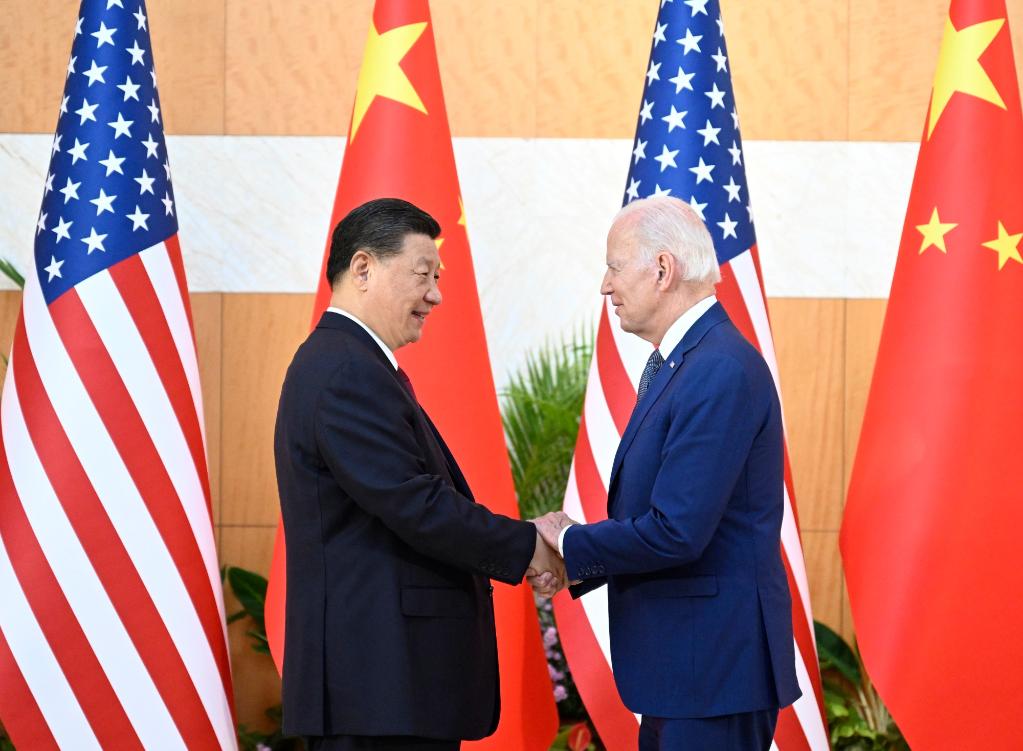In an era marked by geopolitical tensions and economic uncertainties, the recent face-to-face meeting between U.S. President Joe Biden and Chinese President Xi Jinping stands as a critical juncture in shaping the future of international diplomacy. This high-profile engagement, unfolding on the outskirts of San Francisco, served not only as a platform for addressing pressing global issues but also as a symbol of tentative rapprochement between the world's two superpowers.
The meeting, set against the serene backdrop of the Filoli estate—a country house with sprawling gardens about 30 miles south of San Francisco—was a strategic choice. It provided a neutral, yet historically rich venue for discussions. Lasting approximately four hours, this dialogue was a part of a broader effort to recalibrate the strained U.S.-China relations, particularly in the wake of events like the suspected Chinese surveillance balloon incident and Nancy Pelosi's Taiwan visit.
Key Discussions and Outcomes:
1. Taiwan: A central topic, Taiwan's status, dominated much of the discourse. President Xi described it as the most significant and sensitive issue in U.S.-China relations, asserting that while China had no immediate military plans against Taiwan, certain conditions could compel a forceful approach. President Biden, underscoring the necessity for peace and stability in the Taiwan Strait, urged China to respect Taiwan's electoral process. This discussion underscored the delicate balance both leaders are attempting to maintain on this contentious issue.
2. Military Communications: In a significant move towards de-escalation, both leaders agreed to resume military contacts, which China had severed post Pelosi's Taiwan visit. This restoration of military-to-military dialogues is seen as a vital step in reducing the risks of unintended conflicts, especially in the context of recent near-misses and acrimonious exchanges.
3. Direct Presidential Hotline: Biden and Xi established a direct hotline for high-level communications, a mechanism aimed at ensuring immediate and clear dialogues between the two leaders, reflecting an understanding of the need for direct and swift communication in times of crisis.
4. Fentanyl Crisis: A consensus was reached on tackling the fentanyl crisis—a significant issue in the U.S., where the drug causes numerous overdoses. China agreed to target specific companies involved in the production of fentanyl precursors, marking a concrete step in bilateral cooperation on public health and narcotics control.
5. Artificial Intelligence: The leaders also delved into the realm of technology, particularly the risks associated with AI in military and nuclear operations. This discussion highlighted the mutual understanding of the dangers posed by unregulated advancements in AI.
Expectations and the Road Ahead
The Biden-Xi meeting, beyond its immediate outcomes, sets a nuanced tone for future U.S.-China relations. While both nations continue to grapple with ideological differences and strategic rivalries, this meeting has paved the way for more open and regular communication. It suggests a joint commitment to managing their competition responsibly, avoiding escalation into conflict, and cooperating on global challenges like climate change, public health, and technological governance.
However, the road ahead is complex. Issues like trade, human rights, and regional security remain contentious. The Biden administration's approach to these areas will be crucial in determining the trajectory of this relationship. Similarly, China's actions, particularly concerning Taiwan and its regional ambitions, will be closely watched.
In summary, the Biden-Xi meeting has injected a cautious optimism into the dynamic and often tumultuous U.S.-China relations. It has opened avenues for dialogue and cooperation, essential for navigating the intricate landscape of global politics.









